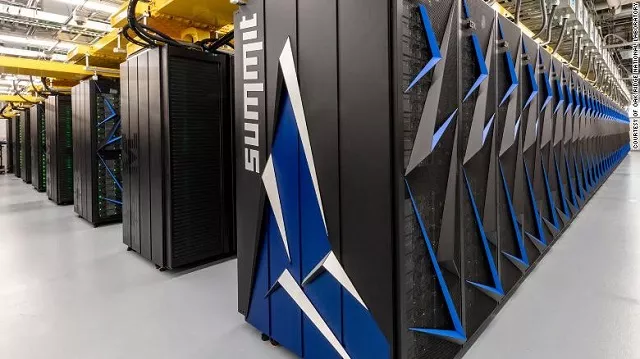World's fastest supercomputer identifies chemicals that could stop coronavirus
Supercomputer Summit identified 77 chemicals which could help researchers bring out the most effective vaccine
The coronavirus pandemic has created extraordinary challenges for scientists who are working diligently to bring out a solution.Due to the speed at which this virus is spreading researchers need a high-speed computer and this is what IBM’s Summit, the world's fastest supercomputer, was built for.
The supercomputer is equipped with the "brain of AI," that ran thousands of simulations to analyse which drug compounds might effectively stop the virus from infecting host cells.
Summit identified 77 of them; this could be a scientific breakthrough that researchers are looking for in order to bring out the most effective vaccine.
Facebook struggles as use increases during coronavirus lockdown
The supercomputer was commissioned by the US Department of Energy in 2014 with the aim to solve the world’s problem just like the current pandemic of coronavirus.
How will the supercomputer fight coronavirus?
Summit is powered with 200 petaflops, this means it has the computing speed of 200 quadrillion calculations per second, which is 1 million times more powerful than the fastest laptop.
At its station in Oak Ridge National Laboratory in Tennessee, the supercomputer is programmed to identify patterns in cellular systems that precede Alzheimer's, analysed genes that contribute to traits like opioid addiction and predicted extreme weather based on climate simulations.
Viruses infect host cells by injecting them with a "spike" of genetic material.
Summit's main job is to detect drug compounds that could bind to that spike and potentially stop the spread.
Micholas Smith, Oak Ridge researcher created a model of the coronavirus spike based on research published in January.
With the help of the summit, he was able to simulate how the atoms and particles in the viral protein would react to different compounds.
The supercomputer ran simulations of over 8,000 compounds that could bind to the spike protein of the virus, which could limit its ability to spread to host cells.
New Google Doodle honours handwashing pioneer
"Our results don't mean that we have found a cure or treatment for the coronavirus," said Jeremy Smith, director of the University of Tennessee/Oak Ridge National Laboratory Center for Molecular Biophysics, in a statement.
"Only then will we know whether any of them exhibit the characteristics needed to mitigate this virus.”
Summit identified 77 of them and ranked them based on how likely they were to bind to the spike.
With the rise in death toll and suspects of coronavirus, researchers are hopeful that with the help of supercomputer they might be able to create a vaccine soon.
The article originally published on CNN.


COMMENTS
Comments are moderated and generally will be posted if they are on-topic and not abusive.
For more information, please see our Comments FAQ